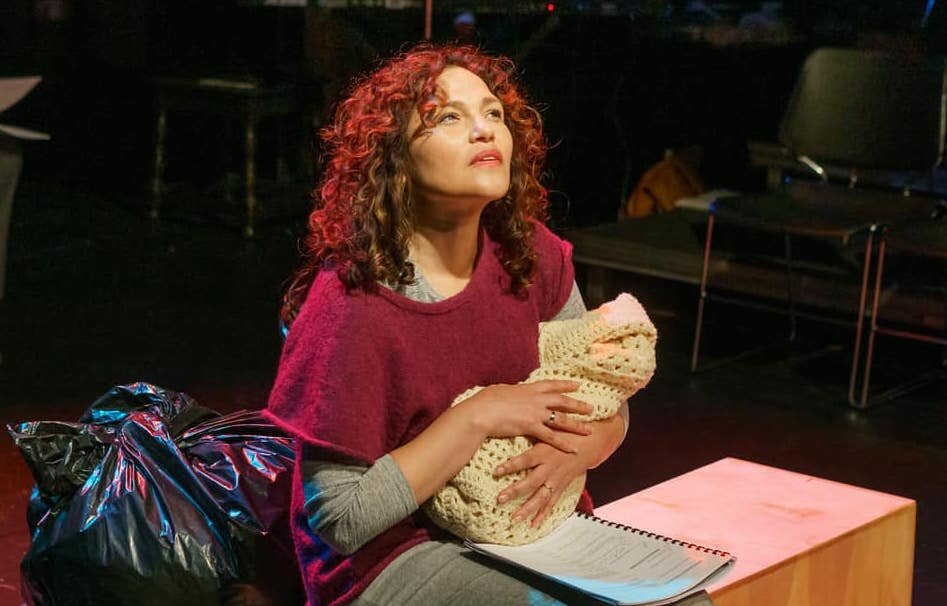Public Scholarship:
Embodied Experiences of Democracy
Public scholarship is research and practice that can inform, facilitate, and/or necessitate partnerships between academics and community members to enrich public knowledge and creative activity. Utilizing the methodology of public scholarship enhances curriculum to prepare, educate, and engage citizens by arming them with knowledge that promotes democratic discourse and facilitates civic action. Documentary and activist theater, my topics of academic and artistic inquiry, are inextricably embedded with the values of public scholarship and political and civic engagement. Public scholarship recognizes the critical role and responsibility of the scholar and artist in all citizens.
The projects chronicled below combine my scholarly pursuits while providing and example of graduate education as a community-engaged practice. As a scholar and an artist my core purpose is to collaboratively explore and create embodied experiences of democracy or what Jill Dolan defines as "utopians performative" or "feeling together over obvious differences inspired by an intensely present moment of theater." Although each person's definition of utopian or even democracy may be different, the feeling of connection and good will toward the "strangers" who inhabit the world with us is a powerful source for change. Monica Prendergast refers to these experiences as social imaginary or "hope as enactive process.” By accessing the social imaginary one can envision what otherwise might seem impossible given the dominant hegemonic paradigm.
The power of the possible is a concept I infuse in my own graduate education. I have come to see that public scholarship is something I am always already doing (and have done). I am always an actor, teacher, student, and scholar. Public scholarship encourages a dynamic learning environment by promoting democratic values, which empower everyone to lead, follow, participate and share. Most importantly, public scholarship facilitates an embodied experience of democracy in a society that has become increasingly less democratic. The benefits of living in a democratic society go beyond just voting. Exercising freedom of speech, accessing power structures, and engaging in civic discourse through words and actions should be experienced in daily life, not just on election day.
Stat All Over Again: The Tacoma Civil Rights Performance Walk, Every Girl’s a Hero, and Pussy Riot in México are all projects the promoted embodied experiences of democracy. In each case I partnered with community members, collaboratively devised community-engaged work, and forged connections that can be activated for future scholarly, artistic, and political endeavors.
Lastly, these projects are potential models of graduate education grounded in public scholarship. I hope to highlight the need for support systems and institutions such as the Simpson Center for the Humanities that function as a conduit between academic research and community dialogue. Graduate students should do more than occupy the space where they live and learn. They should leave graduate school with knowledge of the community that has been the birthplace of their career. Scholars must share what they do and promote the immediate and long-term relevance and impact of academic pursuits and reframe all scholarship as public scholarship.






